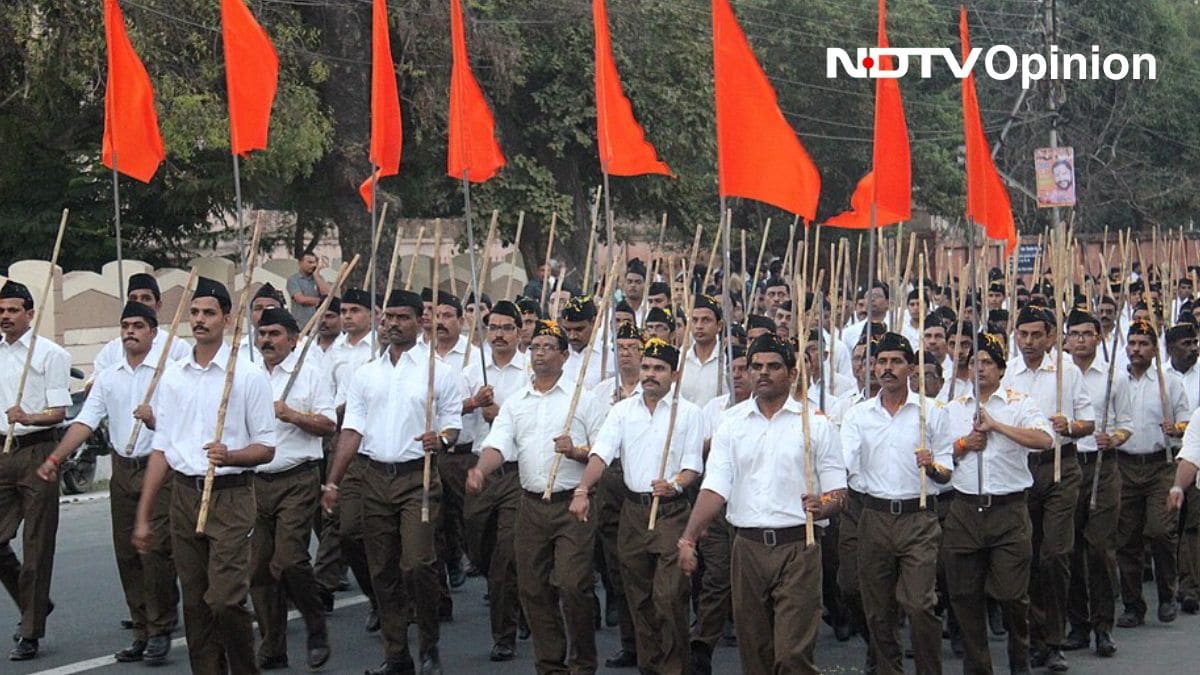The Rashtriya Swayamsevak Sangh’s (RSS) quandary over the growing demand for a nationwide caste census was evident in the laboured formulation it put out at the end of a recent meeting of top Sangh parivar leaders in Kerala.
It cautiously endorsed the idea of a caste headcount but qualified its support with a caveat. The data should be used solely for the distribution of welfare benefits. It should not be used as a political tool or for electoral benefits, RSS spokesperson Sunil Ambekar warned at a press briefing after the deliberations.
Why The Sangh Is Uneasy
The Sangh’s unease bristled in every word. Two factors are at play here. One is the realisation that the campaign for a caste census is gaining momentum. The RSS wants to prevent the Opposition from running away with the ball. Hence the declaration of support for a survey despite strong ideological reservations that Ambekar hinted at.
“In our Hindu society, we have the sensitive issue of caste and caste relations. It is an important issue of our national unity and integrity. It should be dealt with seriously, not on the basis of electioneering or election practices or politics,” he said.
Playing Into Opposition’s Hands
This brings us to the second worry weighing on the Sangh’s mind. It is quite clear from the way Rahul Gandhi threw down the gauntlet during the recent budget session of Parliament that the Opposition has decided to make caste census its main political plank in the months ahead. “Wait and watch,” Gandhi had said. “We (the Opposition) will make sure that the bill (for a caste census) is passed here (in Parliament).” It was both a statement of intent and a challenge. And since then, he and other Opposition leaders have flagged the issue at every given opportunity.
These are early days yet, but should a caste census become an idea whose time has come, it could mark a return to caste politics, which historically has posed a serious challenge to the Sangh’s Hindutva project and its efforts to unite Hindus into one large undivided family.
According to a recent article by French political scientist and Indologist Christoph Jafrelot, there have been two competing political repertoires in the Indian public space since the 1980s, even before late Prime Minister V.P. Singh changed the national political landscape forever with the implementation of the Mandal Commission report bringing Other Backward Classes into the reservations ambit.
The Project To Unite All Hindus
One is caste politics. The other is Hindutva. Jaffrelot traces the clash back to the era when then Congress chief minister Madhavsinh Solanki brought caste politics to Gujarat by introducing reservation policies for OBC groups along with the constitutionally mandated quotas for Scheduled Castes and Scheduled Tribes.
The BJP’s response was to polarise Hindus and create a vote base cutting across caste lines. Gujarat soon became the Sangh’s first Hindutva laboratory with enormous political benefits for the BJP. The party has had an uninterrupted run in the state for more than three decades.
Despite its deep misgivings that caste politics has the potential to divide Hindu society, the RSS has shown amazing flexibility when necessary, particularly after Balasaheb Deoras took over as sarsangchalak in 1973.
Through its wide network of dedicated workers and pracharaks, it has kept its ear to the ground and dabbled with caste on occasion to keep pace with changes in the social and political environment.
Former Uttar Pradesh chief minister Kalyan Singh, former Madhya Pradesh chief minister Shivraj Singh Chouhan, former union minister Uma Bharti and now Prime Minister Narendra Modi are stalwarts of the manner in which the Sangh parivar has managed to seamlessly integrate the competing forces of caste politics with Hindutva into a unified whole. All four leaders are OBCs with impeccable Hindu nationalist credentials.
Scrambling To Find A Solution
With caste politics threatening to rear its head again in the growing cry for a caste census, the RSS is scrambling to come up with suitable ideological tweaking to stay ahead of the curve. Hence the reluctant support for a nationwide caste survey with suitable health warnings about not using the data for political benefits.
Whatever its anxieties about the impact of a return to caste politics on its ongoing Hindutva project, the RSS had little option but to support the idea of a census. Two of the Bharatiya Janata Party’s (BJP) alliance partners, the Janata Dal (United), and, more recently, the Lok Janshakti Party, have been very vocal on the issue. In fact, LJP chief and union minister Chirag Paswan said he hoped that the survey would happen soon. It was essential to avoid discordance on this sensitive issue so early in the tenure of the Modi 3.0 government.
Additionally, the RSS is acutely aware of the manner in which the issue of caste panned out in the recent Lok Sabha elections and singed the BJP in its fortress of Uttar Pradesh as well as in Maharashtra.
The 2024 Lok Sabha Election
There were two prongs to the Opposition campaign in these states. One was the allegation that the BJP wanted a 400-plus majority to change the Constitution and scrap caste-based reservations. The other was the promise to conduct a nationwide caste headcount for equitable distribution of wealth and property. The BJP’s slump in both states showed that Dalits, tribals and many OBC groups deserted it in large numbers in favour of the INDIA bloc.
The fears of the RSS are not misplaced then. However, endorsing a caste census only plays into the hands of the Opposition. It will have to tweak its Hindutva ideology more creatively, as it has in the past, to fight back the mounting challenge from a revival of caste politics.
(The author is a senior Delhi-based journalist)
Disclaimer: These are the personal opinions of the author
